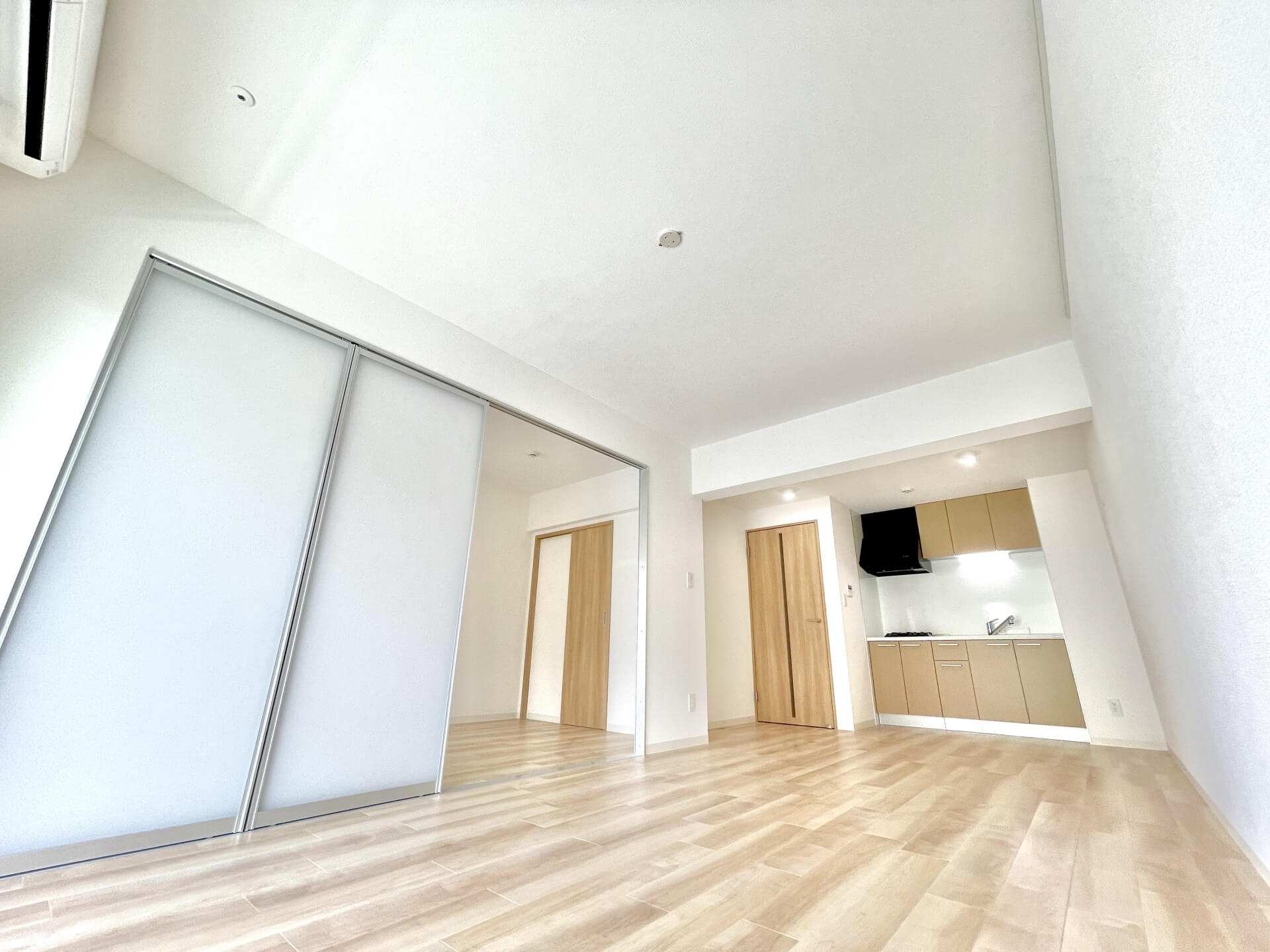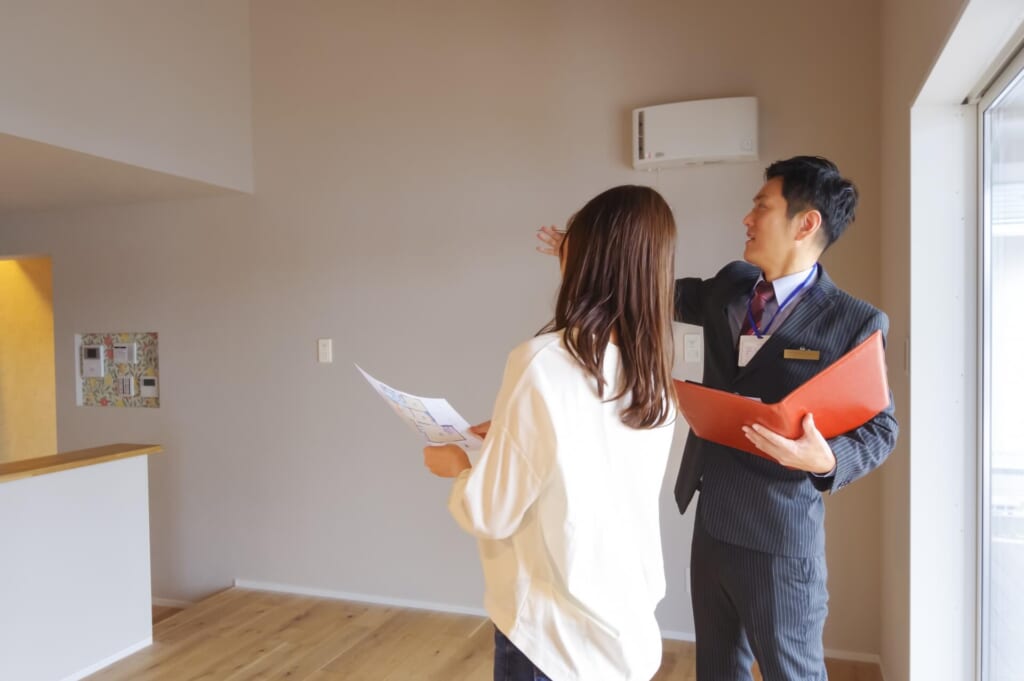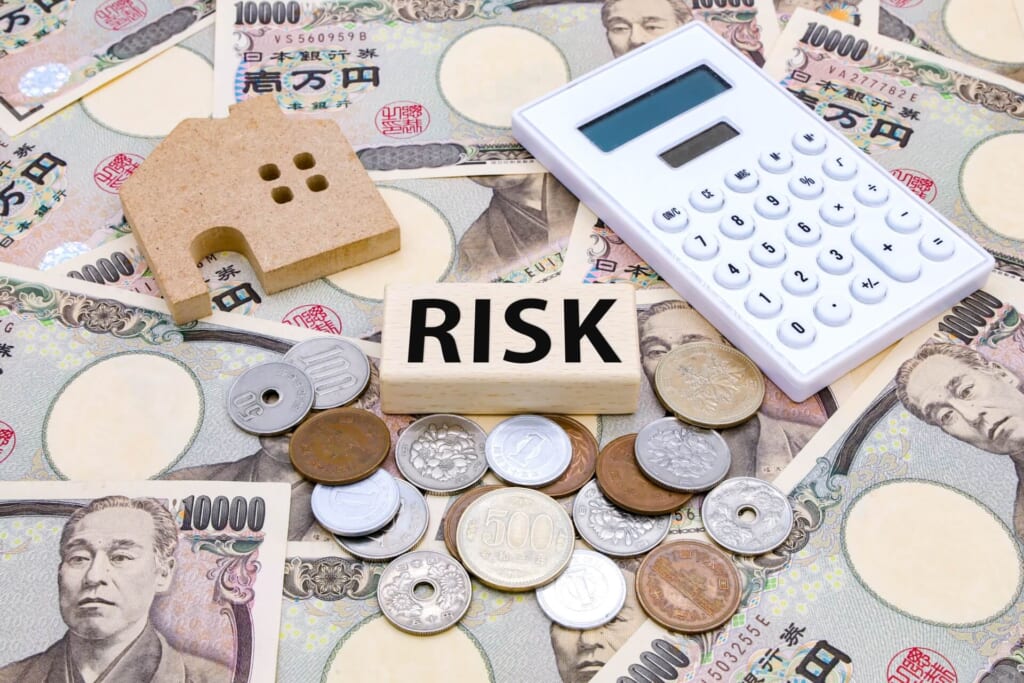Your Ultimate Handbook for Buying Investment Condominiums in Japan
Guide to Purchasing Investment Condominiums in Japan

Japan’s real estate market is an attractive investment destination for foreign investors. The investment condominium market in Japan offers stable rental demand and potential for future capital gains.
When purchasing an investment condominium, it is important to comprehensively consider factors such as geographical location, surrounding environment, and rental demand trends. Additionally, finding reliable partners and management companies is crucial. Utilizing accurate information and expert advice on Japan’s real estate market is key to success from selecting, purchasing, and managing investment condominiums.
Benefits of Purchasing Investment Condominiums in Japan
There are numerous benefits to purchasing investment condominiums in Japan.
Firstly, there is stable rental demand. In urban areas of Japan, there is a continuous demand for rental housing from young people and single expatriates, maintaining high occupancy rates. Additionally, Japan’s legal system provides protection for rental contracts, offering peace of mind for landlords. Furthermore, many urban areas in Japan have potential for property value appreciation, providing opportunities for future capital gains.
These factors make Japan’s investment condominium market attractive to many foreign investors.
Can Foreigners Purchase Investment Condominiums in Japan?
Foreigners can purchase investment condominiums in Japan. Many foreign investors already engage in real estate investment within Japan. In some cases, foreigners can also obtain housing loans from Japanese banks. Although Japanese housing loans generally offer relatively low interest rates, certain conditions must be met.
Additionally, while foreigners can acquire ownership rights when purchasing investment condominiums, it is important to receive expert advice on the procedures and contract details involved in the purchase. Knowledge of tax and legal aspects in Japan’s real estate market is also necessary. Foreign investors are advised to seek support from local experts and real estate companies when purchasing investment condominiums in Japan.
Steps to Purchasing Investment Condominiums in Japan
The steps to purchasing investment condominiums in Japan are as follows:
- Select the destination: Choose the region or city where you want to purchase an investment condominium. Focus on areas with expected rental demand, such as metropolitan areas, large cities, or areas with good access to public transportation.
- Gather real estate information: Collect information on real estate in the selected region, carefully investigating price trends and rental demand trends.
- Seek tax and legal advice: It is important to receive advice on taxes and legal procedures when purchasing real estate. Proceed based on expert opinions.
- Select properties and proceed with purchase procedures: Through a reliable real estate company or broker, visit candidate properties and select a property that meets your criteria. Then proceed with the purchase procedures.
Consider these steps when planning to purchase investment condominiums in Japan.
1. Contacting an Agent
When purchasing an investment condominium, the first step is to contact an agent. Agents are well-versed in the local real estate market and can provide property information and investment advice that match your criteria.
Through communication with the agent, you can understand the investment condominium market trends and local conditions, arrange for property visits, and receive reliable information for smooth purchasing of investment condominiums.
2. Consulting with Banks for Financing
When considering purchasing an investment condominium in Japan, consulting with banks for financing is important. It is advisable to meet with multiple banks or financial institutions, comparing interest rates and loan conditions. Prepare in advance to present conditions that match your asset status, income, and investment plan.
Foreigners face unique challenges regarding financing procedures in Japan, such as residency history and visa status. Thorough preparation and expert advice are recommended for smooth financing negotiations with banks.

3. On-Site Property Inspection
On-site property inspection is a crucial step when purchasing an investment condominium. Visit the site to confirm the property’s location, surrounding environment, and building condition.
Initially, visit candidate properties with real estate companies or brokers. Assess the exterior and neighborhood to envision future rental demand. Then, inspect the interior to check the layout, facilities, and building maintenance status. Comparing other properties in the same area is also important.
During on-site inspections, actively ask questions to professionals or real estate agents and evaluate the property objectively to determine its suitability for investment.
4. Expressing Intent to Purchase
At the stage of expressing intent to purchase, formally indicate your intention to buy the selected investment condominium. Communicate your specific intention to purchase to the seller through the real estate company or broker. Conduct thorough discussions on price negotiations and property conditions.
With expert advice, ensure careful review and confirmation of the contract content and important details. Additionally, if utilizing a loan, have prior discussions with financial institutions to understand loan screening and borrowing conditions. Proceed diligently to finalize the purchase intent and conclude the contract for the investment condominium.
5. Contract Signing
Contract signing is a crucial step in purchasing an investment condominium.
First, sign the contract with the seller, carefully reviewing contract details, payment conditions, and handover dates. Ask any questions you have and ensure complete understanding before signing and providing signature verification.
After finalizing the contract, confirm the property condition and handover schedule. Ideally, seek advice from professionals or lawyers for careful progression until the contract signing. Properly handle the necessary documents and payments to ensure a smooth property acquisition by the handover date.
6. Final Settlement
The final settlement is the crucial stage where the property ownership is officially transferred upon completing the real estate sales contract. At this point, the remaining purchase amount and various expenses are paid, and property registration is conducted.
During the final settlement, carefully review the contract and expense details. Especially for foreign investors, understanding Japan’s real estate transaction practices and legal requirements is essential. Coordinate schedules and procedures with the buyer, seller, and involved parties for a smooth final settlement. Utilize the support of real estate companies and involved professionals to ensure a secure transaction.
Analysis of Real Estate Markets in Major Cities
Japan’s major cities include Tokyo, Osaka, Nagoya, and Fukuoka, each with distinct real estate market characteristics and demand trends.
- Tokyo is an international city with high rental demand supported by its business needs, offering significant potential for capital gains.
- Osaka draws attention with commercial facilities and renovated condominiums, with increasing value in redevelopment areas.
- Nagoya offers convenience and good living environments, with relatively stable rent prices.
- Fukuoka benefits from tourist attraction and high youth retention rates, with rising land prices expected.
Understanding these city-specific characteristics and constructing an appropriate portfolio leads to successful real estate investment.
Tokyo City Center (Shibuya, Minato, Chiyoda)
In the important area of Tokyo’s real estate market, Shibuya, Minato, and Chiyoda wards attract attention.
- Shibuya is vibrant with youth culture, fashion, and entertainment, maintaining stable rental demand.
- Minato ward, with its high-end residential areas and commercial facilities, is popular among foreign expatriates and investors.
- Chiyoda ward, hosting government offices and major corporate headquarters, sustains a real estate market driven by business needs.
Understanding the characteristics and future potential of each area, considering demand trends and rent prices, is essential when selecting investment condominiums. Actively utilize advice from local real estate companies and experts for more accurate investment decisions.
Western Tokyo (Nakano, Suginami)
Located in western Tokyo, Nakano and Suginami wards are popular for their accessibility to the city center and excellent living environments.
- Nakano is known for its rooted anime and music culture, bustling with young people. The area around Nakano Station offers commercial facilities and restaurants, with convenient access to the city center, maintaining stable rental demand.
- Suginami ward provides a calm residential atmosphere with parks and shopping streets, suitable for families. Increasing redevelopment areas are creating new demand.
In these areas, selecting investment properties requires considering regional characteristics and potential value improvements.
Eastern Tokyo (Chuo, Taito)
As Japan’s capital and political-economic center, Tokyo’s eastern Chuo and Taito wards are known for their historical tourist attractions and commercial facilities.
- Chuo ward, a major business district, features high office and rental demand around stations.
- Taito ward, with tourist spots like Asakusa and Ueno, anticipates demand for accommodation and tourist-oriented rental properties.
The increase in foreign tourists partially due to the Tokyo Olympics highlights interest in accommodation and short-term rental properties. Chuo and Taito wards offer diverse demand responses, attracting real estate investors.
Southern Tokyo (Shinagawa, Ota)
Shinagawa and Ota in southern Tokyo are known as business areas with good transportation access, housing office buildings and commercial facilities. As an area close to Haneda Airport, it attracts tourists and businesspeople for its high convenience.
The area hosts many company offices, leading to stable rental demand. Urban redevelopment and commercial facility expansion increase future land value expectations. The high living convenience and calm residential environment attract families and singles, making it a buyers’ market for rental apartments.
Shinagawa and Ota areas are noteworthy for expected land value appreciation.
Yokohama City
Yokohama City, adjacent to Tokyo, is a convenient business hub and an attractive city with beautiful coastlines and natural environments. Redevelopment around Yokohama Station boosts office and rental demand.
The Minato Mirai district and Yokohama Port resorts attract attention, increasing rental demand from tourists and foreign visitors. Apartment rents in Yokohama are relatively lower than in city centers, making investment condominium acquisition costs attractive.
As demand increases, land value appreciation is expected. Focusing on rental demand utilizing Yokohama City’s accessibility and natural environment is important for real estate investment.
Osaka City
Osaka City, Japan’s third-largest city, is supported by domestic and international tourism and business demand. It is an attractive market for real estate investors, with high demand in redevelopment areas and commercial facilities.
In central Osaka, rental demand concentrates around areas like Umeda and Shin-Osaka, where good location is key. Increasing foreign tourists’ demand for short stays, private lodgings, and hotels also grows.
Successful real estate investment in Osaka City involves thoroughly researching regional demand differences, redevelopment plans, and transportation convenience, selecting high-potential properties. Partnering with local real estate agents and rental management companies enables steady revenue generation.
Kobe City
Kobe City is a leading international city in Japan, attracting many tourists and expatriates, ensuring stable rental demand. Popular areas like Sannomiya and Motomachi maintain high rent levels.
Kobe’s appealing natural environment adds to its charm, offering diverse areas from quiet residential zones to bustling downtowns, meeting various needs. Recent interest in condominium renovations generates new demand. Kobe City’s real estate market, catering to diverse demands, is an attractive investment destination.
Kyoto City
Kyoto City, a top tourist city in Japan, boasts rich historical value and cultural charm. The city’s internationalization attracts tourists, students, and expatriates, ensuring stable rental demand, making it suitable for investment condominiums.
Central Kyoto attracts short-term rental demand from tourists, while suburban and student areas expect long-term rental stability. Property selection and management in Kyoto City require attention to landscape and environmental considerations. Investing in Kyoto City necessitates understanding regional demand trends, regulations, and utilizing local real estate experts’ advice.
Sapporo City
Sapporo City, Hokkaido’s largest city, offers abundant natural environments, living comfort, and rich tourist resources, making it attractive for real estate investment. The high resident retention rate ensures stable rental demand.
Sapporo City’s downtown and suburban areas have different demand characteristics. The city center attracts young and single households, while suburban areas appeal to families. Given Sapporo’s automobile-dependent areas, property location and surrounding infrastructure are crucial.
Comprehensive evaluation of regional characteristics and future potential is essential for investment, with local real estate experts‘ information exchange playing a key role.

Nagoya City
Nagoya City, located in central Japan, is vital for its economy, transportation, and culture. Key areas like Sakae and Nagoya Station have stable rental demand, focusing on offices and shopping malls.
Nagoya’s land prices are relatively lower than Tokyo and Osaka, making investment condominium purchase costs attractive. Nagoya offers good living environments, ensuring family rental demand. Successful real estate investment in Nagoya involves understanding area-specific appeal and future potential, collaborating with local real estate companies and management firms.
Taxes on Real Estate Investment in Japan
Real estate investment in Japan involves various taxes.
Firstly, the real estate acquisition tax is paid when acquiring real estate, calculated as a percentage of the acquisition price. Additionally, real estate income tax is crucial, applied to income from real estate, including rental income. Non-residents have special resident tax provisions, so detailed confirmation is necessary.
Furthermore, capital gains tax applies to property sale profits, requiring careful planning for profitable sales. These taxes are unavoidable when owning investment condominiums, making consultation with experts essential for proper handling.
How to Find a Good Real Estate Agent
Finding a good real estate agent involves several key points. Firstly, research the agent’s track record and reputation. Trustworthy agents have valuable transaction records and customer reviews. Additionally, consider the agent’s expertise in specific areas or property types. Choosing an agent experienced in your desired area or property type ensures precise advice and information.
Communication skills and integrity are also crucial. Agents who provide smooth information sharing and honest responses build trust, facilitating secure transactions. Lastly, consider your compatibility with the agent. A good agent-client match enhances smooth real estate transactions.
Investment Risks and Mitigation Strategies

Understanding investment risks and their mitigation in Japan’s investment condominium market is crucial.
One risk is market fluctuations. Economic trends and real estate market changes can affect rental demand and property value. Mitigate this by selecting stable locations and high-demand areas.
Another risk is rising maintenance costs. Prepare for unexpected repairs and increasing management fees by contracting reliable management companies and setting up repair reserves. Tenant issues and vacancy risks also exist. Mitigate this by selecting tenants carefully and implementing marketing strategies to maintain high occupancy rates.
Understanding and preparing for these risks ensure stable investment condominium operations.
Basic Risk Management
Basic risk management involves several key points.
- Firstly, planning for future risks when purchasing investment condominiums is essential. Address operational, market fluctuation, and management risks with detailed plans.
- Next, appropriate insurance is crucial. Fire and earthquake insurance are essential for rental condominiums, and check if rental management companies have proper liability insurance.
- Additionally, diversifying investments in multiple properties reduces dependence on a single property, ensuring stable operations.
These fundamental approaches enable safer investment condominium operations.
Understanding Laws and Regulations
Understanding laws and regulations in Japan’s real estate investment is vital. Foreigners have tax incentives like the Special Resident Welcome Program and Investment Real Estate Acquisition Measures Program. Utilizing these provides tax benefits.
Additionally, understanding the Land Lease Act and Building Standards Act governing real estate transactions and rental contracts is crucial. The Land Lease Act strengthens tenant protection, making legal knowledge essential for avoiding tenant disputes.
Moreover, local restrictions vary by prefecture and municipality, affecting land acquisition. Understanding local regulations and minimizing legal risks is essential for real estate transactions.
Monitoring Market Trends
Monitoring market trends is vital in Japan’s investment condominium market. Research rental demand, rent prices, and vacancy rates by region. Use the internet, real estate magazines, and market research reports to gather the latest information. Consider future regional potential, including surrounding facilities, transportation access, and urban redevelopment plans.
For foreign investors, currency risk is crucial. Understand the impact of exchange rate fluctuations and hedge foreign revenue.
Accurately monitoring market trends and formulating forward-looking investment strategies is key to success.
Portfolio Diversification
Portfolio diversification is crucial when entering Japan’s investment condominium market.
Combine properties from different regions and types to hedge against region-specific risks. While Tokyo has demand, local areas offer stable rental demand. Selecting investments based on regional correlations diversifies portfolios.
Additionally, combining real estate investments with other financial products like real estate investment trusts (REITs) or real estate-related stocks provides risk diversification. This protects against specific real estate market risks.
Accurate market analysis and multifaceted risk diversification ensure successful portfolio diversification in the investment condominium market.
Frequently Asked Questions (FAQs)
Here are common questions from those interested in Japanese investment condominiums:
Foreigners have the right to purchase condominiums in Japan, but some regions or properties have restrictions. Consults experts for guidance.
Management involves costs like management fees, repair reserves, and taxes. Proper budgeting and planning are essential.
Tokyo’s 23 wards, Osaka, and Nagoya have high rental demand. Understand local market trends for accurate investment.
For further questions or concerns about investment condominiums, consulting experts is recommended.
Conclusion
Investing in Japanese condominiums can be a lucrative opportunity for foreign investors. Japan’s real estate market offers stable rental demand and the potential for future capital gains. When considering a condominium investment in Japan, it’s crucial to carefully assess factors such as location, surrounding environment, and rental demand trends.
Additionally, finding reliable partners and management companies is essential. From property selection to purchase and ongoing management, gaining access to accurate information and expert advice on Japan’s real estate market is key to success.
With proper due diligence and a strategic approach, investing in Japanese condominiums can be a rewarding venture for individuals seeking to diversify their investment portfolio and capitalize on the opportunities offered by Japan’s dynamic real estate market.
